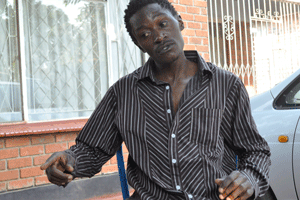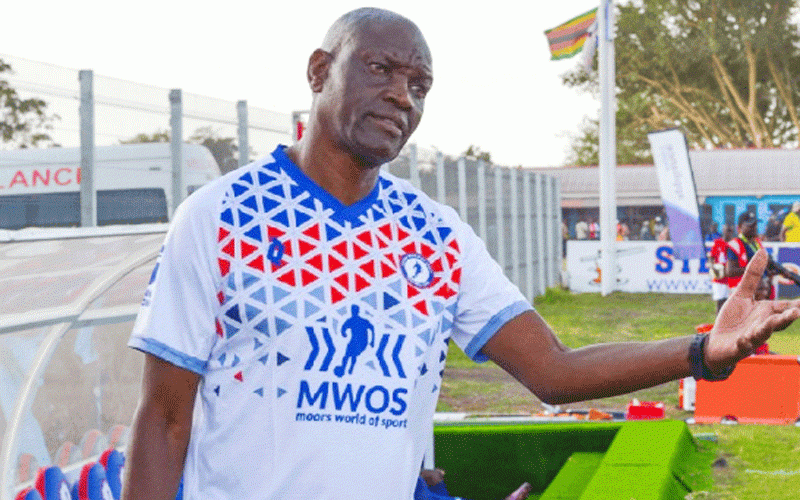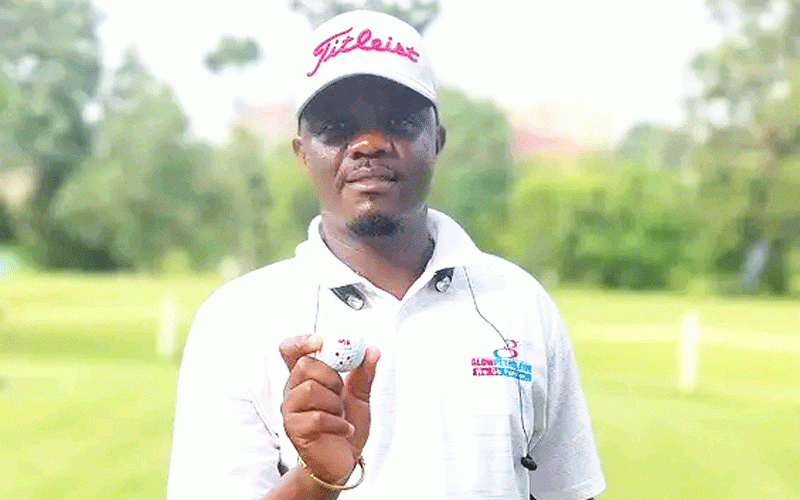
RUNNING a few inches on the side of former Dynamos, Kaizer Chiefs and Black Leopards’ striker Kelvin Mushangazhike’s right eye is a 13-stitch long scar.Report by Albert Marufu

The disfigurement, a result of a car accident back in 1998, black lips, red eyes and twisted small hair, falsely gives the 30-year-old the face of a misfit.
Mushangazhike, who fathered five children — Sharmaine (12), Tafadzwa (10), Melanie (8), Tariq (4) and Corwin (2) — with four different women, is a good man, though he is frustrated.
Still staying at his parents’ Budiriro suburb home in Harare, after a career in South Africa, Vietnam and Mozambique, Mushangazhike looks back at his once-promising career and shakes his head.
“I normally do not want to talk about my life, but I have suffered so much in football,” said Mushangazhike while stroking a 10-pack cigarette box.
Mushangazhike left the country for South Africa’s Kaizer Chiefs in 2002 aboard British Airways, only to return home four years later in a deportation truck, commonly referred to as gumbakumba.
To him, the experience of spending one month, three weeks detained at Lindela Detention Centre awaiting repatriation destroyed his spirits.
“People see an irresponsible person in me which is not the case. I was traumatised at Lindela and this has affected me greatly in my life. I was caught without my passport while visiting my friends in Yeovil and stayed for more than a month at Lindela and that has affected the way I have progressed in my career.
- Chamisa under fire over US$120K donation
- Mavhunga puts DeMbare into Chibuku quarterfinals
- Pension funds bet on Cabora Bassa oilfields
- Councils defy govt fire tender directive
Keep Reading
“My passport was at the club (Garankuwa United FC) that I intended to join and unfortunately my visa had expired.”
He claimed depressing moments forced him to seek solace in cigarettes while he was playing.
But why was his career not as flourishing as that of other equally talented locals who played in the Diaspora?
“I did not earn much money that could buy a house. People see a player going to South Africa and think his lifestyle should change. There are so many things that happen out there which people do not understand,” said Mushangazhike, who is brother to former Motor Action player Blessing.
“I was sold to Kaizer Chiefs for R400 000 (US$48 299,27), and got R40 000 (US$4 826,40) as part of my 10%. My salary was R10 000 (US$1 201) per month and the signing-on fee was US$7 500, which is not enough to buy a house. I only managed to extend my parents’ house. I also looked after my elderly parents and other four siblings. I am glad that my parents have welcomed me back to stay here.
“I also had problems with my previous marriages. People blame me for that, but I am not to blame. During the first marriage I was staying with Tinashe Nengomasha in the same flat in South Africa and could not stay with my wife. That led to problems which led to us divorcing. Right now I am married again, but my wife, with whom I have two kids, lives in South Africa where she is working.”
Mushangazhike, who is now surviving from rentals from his parents’ house, said he did not regret playing football without the requisite rewards.
“The cold treatment I received from soccer agents and clubs has prepared me to be a good agent and I will definitely protect my players when I start exporting them.”
Mushangazhike’s entry into the world of player management got off to a false start in 2009 when he “sold” three players to Mozambique’s Liga Maculmana, but did not get his share of the proceeds.
“After quoting the club US$60 000, the players in turn underpriced themselves settling for a mere US$10 000 each, which they used to buy cars leaving me penniless,” he said.
He hopes to start an academy which will see him exporting players to Vietnam where Tostao Kwashi is playing.
“I have learnt a lot from the juniors that I am coaching. As a result, I have quit smoking dagga, as they look up to me. Most of them never saw me play, so I have to be very responsible,” he said.
On the future of local football, Mushangazhike was optimistic. “I remember watching the likes of Abbas Amidu, Knowledge Musona and Khama Billiat when they were playing for the national Under-17 team. I made a prediction long back that these youngsters were going to bring a medal from the London 2012 Games. Unfortunately they did not play in the qualifiers,” said Mushangazhike, who also had a stint with Mozambique’s Liga Maculmana in 2009, putting a lid on his football career.











